No-one ever expects to be involved in a crash on the road. Unfortunately, having an accident while driving is a common occurrence. Over27,300 people were killed or seriously injured in accidents in 2021. In 2020, the total human costs for serious casualties in road accidents surpassed 3.5 billion pounds.
A minor bump or a serious accident can occur in the blink of an eye. But shock, fright or injury can often make it hard to remember what you need to do in the immediate aftermath.
We've pulled together this guide as a handy reminder of the steps to take after a car accident.
- What steps to take after a car accident
- What should I do if I am stranded on the motorway hard shoulder?
- Do you have to report a minor car accident to police forces?
- What should I do if I hit an animal?
- What information should I record at the accident scene?
- How long do you have to report a car accident to your insurance company?
- Can I still drive my car after an accident?
- Should I see the doctor after a car accident?
- What types of injury are common in a road traffic accident?
- I was in a car accident yesterday, what should I do next?
- With a car accident that's my fault, what happens?
- What happens if I've been in a car accident that wasn't my fault?
- What are the steps to take after a car accident where the other driver didn't stop?
- Can I make a car accident injury compensation claim?
- What happens if I wasn't wearing my seatbelt?
- What the law says about seatbelts
- Can I make a car accident claim on someone else's behalf?
- What are the time limits for making a car accident compensation claim?
Involved in a Road Traffic Accident?
If so, you're likely to have experienced similar injuries or trauma to 40% of people we asked, who had also been involved in a Road Traffic Accident. Such accidents can have a profound on your physical and mental health, and how you live your life. We're here to help you #ClaimWithConfidence and get life back on track.
What steps should I take immediately after a car accident?
Car accidents can be traumatic for everyone involved. Regardless of who is to blame or how bad the accident was, there are steps you should take in the aftermath to keep yourself and other road users safe.
Here's everything you need to do after you've been involved in a car accident:
- DO pull over safely if you are able.
- DO stop the car, switch off your engine and turn on your hazard lights to warn other road users.
- DO check for any injuries to you or your passengers, then check for injuries with any others involved. If anyone is injured, dial 999 and ask for the police.
- DO get all passengers out of the vehicle and make sure they're safe.
- DO exchange name, address, contact number, registration details, vehicle owner's name and insurance details with others involved.
- DO keep calm.
- DON'T apologise or admit fault in the heat of the moment. What's happened and who's to blame is for the insurance companies or police to decide.
1.
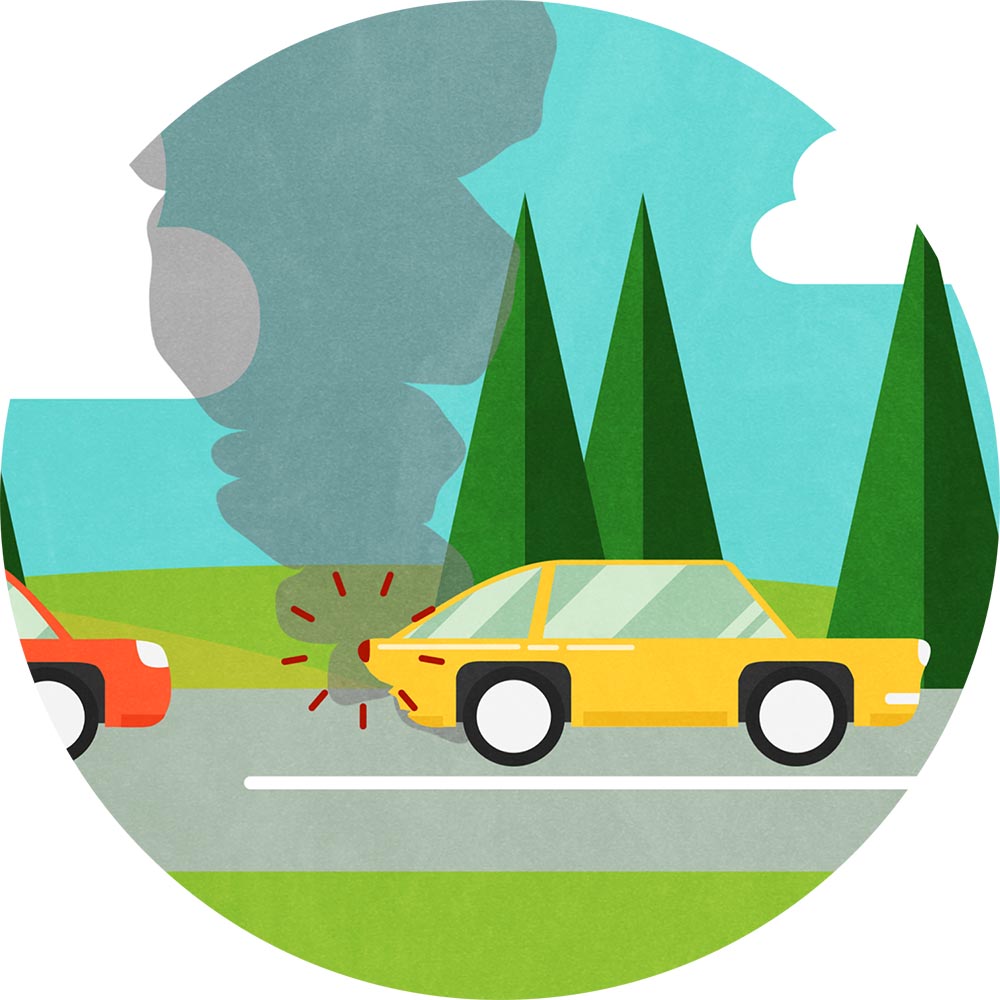
Stop the car as soon as possible Be sure to put your hazard lights on if possible
2.
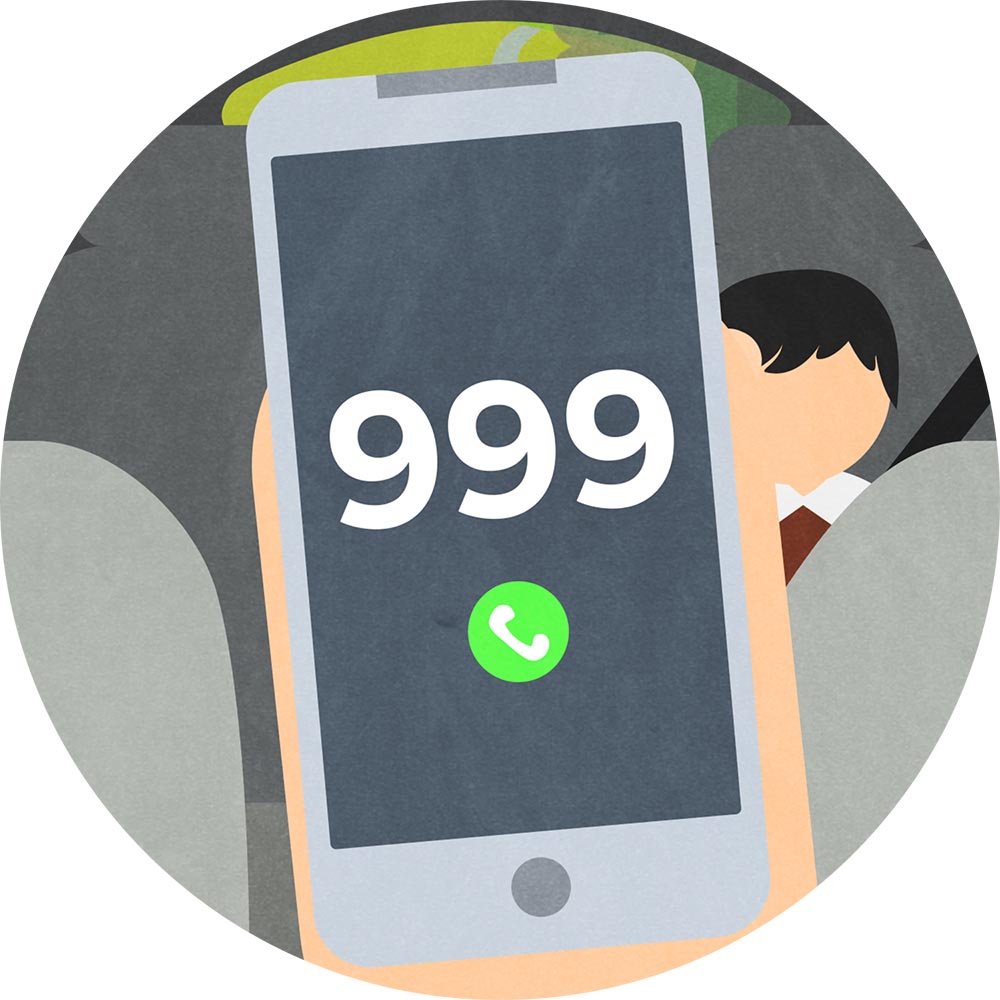
Make sure you and your passengers are OK
Call 999 if anyone is seriously injured
3.
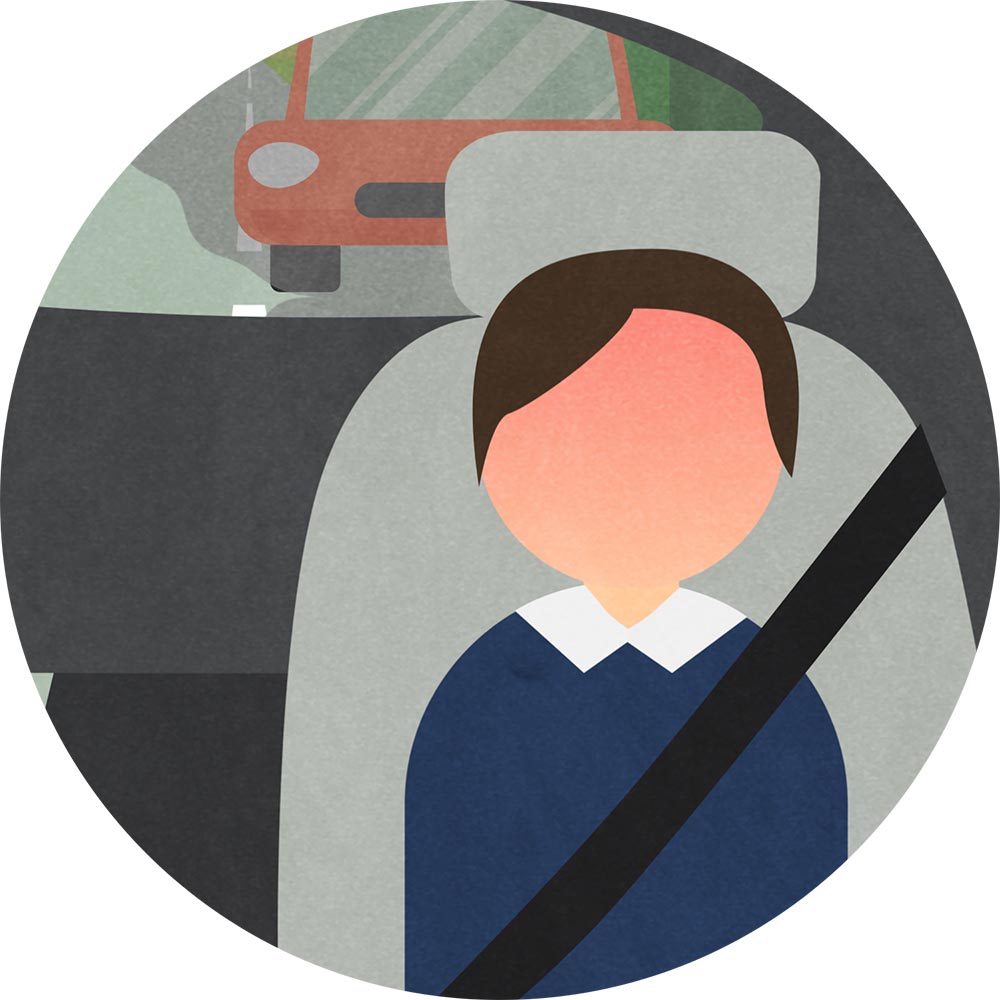
Try to remain calm
It's normal to be shocked after an accident
4.
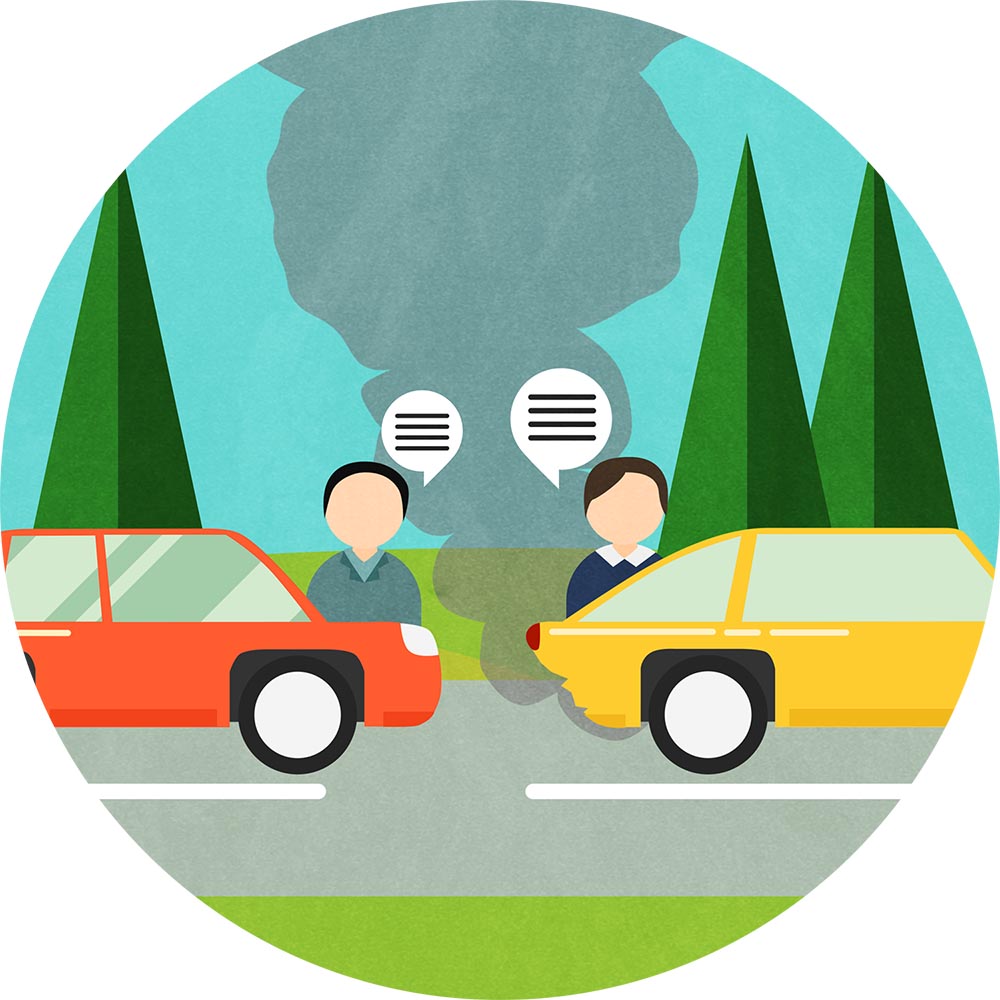
Exchange details with anyone involved;
Names, Contact numbers, Insurance details
5.
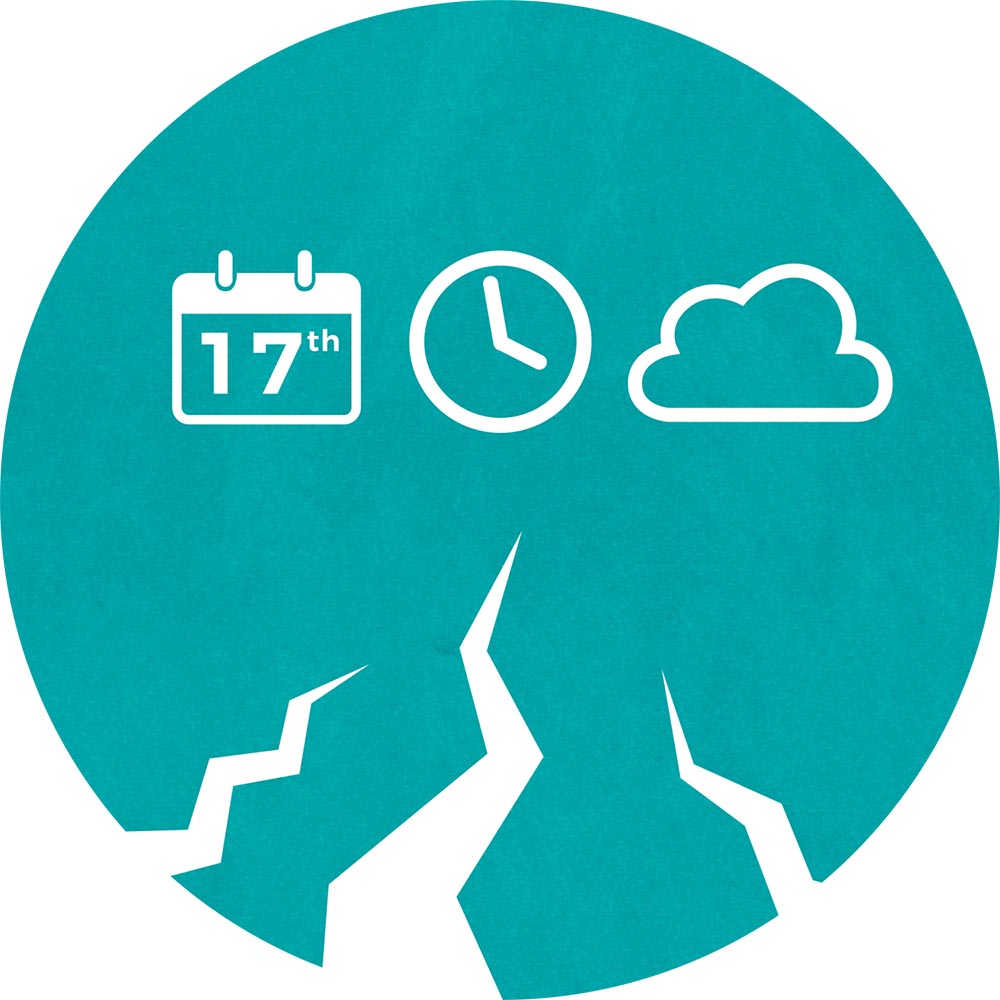
Take note of the scene of the accident
Date, Time, Weather, Damage
6.
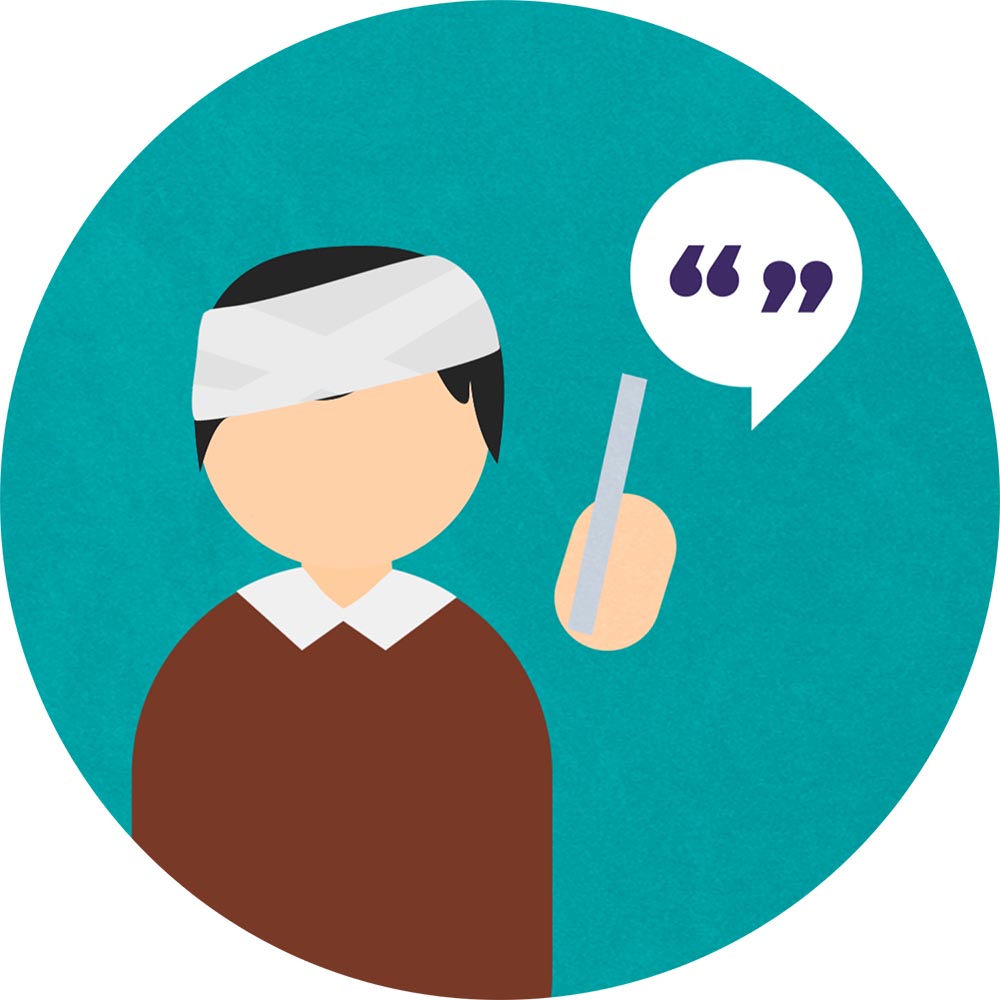
Call our Personal Injury Advisors to see if we can help
You may be entitled to compensation if it wasn't your fault
What should I do if I'm stranded on the motorway hard shoulder?
Being stranded on the hard shoulder on the motorway can be scary and dangerous. You may feel a little panicked, and unsure what you should do next. Here are the steps you should take if you've landed on the motorway hard shoulder:
- Try and stop as near as possible to an emergency telephone.
- There's one roughly every mile on the hard shoulder and they're usually painted orange.
- Using it will identify your location to the police or the relevant highways authority.
- Ensure your hazard lights are on and flashing.
- Always leave the vehicle from the left-hand doors (nearside).
- It's awkward for the driver but vital for their safety.
- Move any passengers to a safe place away from the hard shoulder.
- Leave animals secure inside the car.
- Only move pets if it's an emergency situation, in which case keep them restrained on a lead and well back from the hard shoulder.
Do you have to report a minor car accident to police forces?
You don't always have to get the police involved in a minor car accident, unless under certain circumstances. These are:
- If anyone is injured. They'll establish whether an ambulance or fire brigade are needed.
- If the accident has blocked the road.
- If the other vehicle failed to stop.
- If you suspect the other driver is under the influence of alcohol or drugs.
- If the other driver won't give their insurance details or you think they may be uninsured.
- If you suspect that the other driver caused the collision deliberately.
What should I do if I hit an animal?
Hitting an animal while you're driving is extremely distressing. If you hit a dog, donkey, mule, horse, goat or pig, theRoad Traffic Act 1988 says you must notify the police. In fact, it's a criminal offence not to do so. There are certain things you should do if you hit a dog or a cat, which are:
- If you're aware you've hit a dog or a cat, stop if it's safe to do so.
- Move the animal to a safe place, if it can be moved.
- Keep it warm with a blanket or coat if you have one.
- If it has a collar tag, call the owner and take it to them or the nearest vet, if possible.
- If it's a dog, make sure you report it to the local police within 24 hours by dialling 101.
- The vet will check to see if a collarless domestic pet has a microchip ID. All dogs must be microchipped by law. Mandatory microchipping for cats is under review.
- If you find yourself with no alternative, report road accidents with proscribed animals to the police immediately and to a local vet or the RSPCA's emergency service on 0300 1234 999 if they need urgent care.
Historically, you don't need to report hitting a cat to the police. However, legislation is now under consideration to correct this so be aware that your legal duty as a road user may change.
With incidents involving wildlife, it's a common-sense call. Rabbits, foxes, birds and badgers are one thing. But if it's a big, incapacitated mammal like an injured deer, you may wish to seek veterinary or RSPCA help at the scene. Notify the local council if you feel it's necessary.
What information should I record at the accident scene?
Legally, you have to exchange certain details with anyone involved at the scene of the accident, including your name and address. You also have to swap insurance information and take down the details of any witnesses to the accident.
Aside from this, you should also record certain details at the accident scene, these are:
- The time and date of the crash
- The number plate, make, model and colour of the vehicles involved.
- Driving conditions, including the weather and road quality
- The damage that was caused to your vehicle and where
- Any injuries to drivers, passengers, or pedestrians
- The names and contact details of witnesses
- Receipts for taxi's, alternative transport if you were unable to use your car after the accident
You should also take as many pictures as possible of the cars involved and damage at the scene. If nobody else is involved, you should leave your details on a note where the owner can see it.
How long do you have to report a car accident to your insurance company?
If you've been involved in an accident, you must tell your insurance provider as soon as possible. A lot of insurance companies have a limit on the time you have to report an accident. And most specify that you need to tell them about an accident within 24 hours.
Can I still drive my car after an accident?
It's an offence to drive away from an accident, but what about after you've done everything you need to do at the scene? If your car is drivable, you can drive it away after an accident. However, if you have any doubts, you should get your car checked to make sure everything is in good working order. If you don't, it could invalidate your insurance and you'll be left without cover.
Should I see the doctor after a car accident?
This is a common-sense call. If you have suffered an injury, then go and see your GP or visit your local A&E. Our advice is to go see your GP anyway as you may have an internal injury you don't know about.
What types of injury are common in a road traffic accident?
Car and road traffic accidents can cause a wide range of impact injuries. Most UK police constabularies classify road accident injuries into five categories. The most serious category is fatality, of which there were an estimate 1560 reported in 2021. The others are:
- Slight - covers injuries like neck whiplash, shock, bruising, soft tissue sprains and strains plus shallow cuts, grazing and abrasions.
- Less serious - deep cuts, hand, arm or collarbone fractures plus foot, ankle or lower leg fractures and minor head injuries.
- Moderately serious - chest injuries, deeply penetrating wounds and thigh or pelvis fracture,
- Very serious - broken neck or spine, severe head, chest or crush injury with loss of consciousness or breathing difficulty. Also included are all internal injuries and multiple severe injuries combined with a loss of consciousness.
Motorcycling injuries are often more serious than those sustained in a car or commercial vehicle. Bad cases can be very hard to deal with and can take months to heal.
I was in a car accident yesterday, what should I do next?
Always make sure you do the following things after a crash:
- Report it to your insurer, describing what happened. Give details and tell them if you've been injured. Gather any evidence like dashcam footage or pictures.
- If you or any others were injured and no-one called the police at the scene, then report it to the police within 24 hours by calling 101.
- Promptly follow any subsequent instructions your motor insurer or the police give you.
With a car accident that's my fault, what happens?
The insurance companies involved will decide who is to blame for the crash. The police may recommend prosecution in cases like driving without due care and attention, reckless driving or driving under the influence of drink or drugs.
- If you were at fault, then your insurance company will pay for the vehicle repairs.
- You will pay the excess on your policy. This is the portion of any claim that you agreed with your motor insurer when you took out the cover.
- You'll lose a proportion of any no-claims bonus you've built up and your premium may increase at renewal.
- If the other party was injured and seeks compensation, your insurance company will pay the claim if it's successful.
If you were also injured, you won't be able to make a compensation claim as you were to blame for the accident.
What happens if I've been in a car accident that wasn't my fault?
In these circumstances, the other driver's car insurance policy will take care of any vehicle repairs you need. If you've been injured, you also may be eligible to make a no win no fee compensation claim against the other driver's insurers. This applies if you were the driver or a passenger. Call us for a confidential chat on and we can advise on your situation.
What are the steps to take after a car accident where the other driver didn't stop?
Failure to stop after an accident is often called a ‘hit and run' or ‘dent and run'. It's a criminal offence that carries a maximum penalty of six months in prison.
If you've been injured in a hit and run, as a driver, passenger, pedestrian or any other type of road user, there is a system in place to help you.
The Motor Insurance Bureau (MIB) is the organisation run by UK insurers to compensate people injured on the road in challenging circumstances. These circumstances are where:
- The other driver failed to stop and drove off without you getting their details or registration number.
- For instance, this could be because the car was stolen or on fake plates.
- The other driver was uninsured or could not be traced via the DVLA.
- The other vehicle was foreign-registered.
- You've been a victim of terrorism involving a vehicle.
We can help, so call us on for a confidential chat. We'll be able to advise if you're eligible to make a car accident compensation claim.
Can I make a car accident injury compensation claim?
At National Accident Helpline, we're here to support you through the difficult periods that follow an accident. We understand that an accident while driving can be a traumatic experience. Not only can it cause life-changing injuries, but it can impact your work, prove harmful to your finances and even damage your mental health and wellbeing.
We're here to listen to your story. All you have to do is call out accident claims advice helpline free on .
What happens if I wasn't wearing my seatbelt?
There are some specific exceptions, but the law says you must wear a seatbelt in the front or back of a moving vehicle. However, you may still be able to make an injury claim if you weren't wearing one as long as the car accident was someone else's fault.
You may have been injured because you weren't wearing your seatbelt. Alternatively, your injuries may have been made worse because you weren't doing so.
Either way, you'll likely receive a lower compensation pay out in a successful claim because of contributory negligence. This means that while you weren't responsible for being injured, wearing no belt made you partially to blame for your injuries.
Let's work through an example. You're hurt in a road traffic accident and the successful injury compensation claim you bring against the other side is worth £10,000.
- Because you weren't wearing your seatbelt, it might be agreed that you were 25% responsible and the other party 75%.
- This is called a split liability of 25:75.
- That 25% of blame equates to £2,500 so the award is £7,500 instead of the full £10,000.
What the law says about seatbelts
You must always wear a seatbelt in the front and the back seats of a moving vehicle. The exceptions include:
- You're a passenger on a bus not fitted with seatbelts or were standing.
- You've got a medical exemption certificate.
- You're delivering goods in a commercial vehicle and have less than 50 metres to your next drop-off.
Seatbelts and your children
- All kids under 14 years old must wear seatbelts or sit in an approved child seat with the proper restraints.
- For children under 1.35 metres in height, you must use a baby seat, child seat, booster seat or suitable, approved booster cushion.
- These must be fitted according to the manufacturer's instructions.
Can I make a car accident claim on someone else's behalf?
Yes, you can. This usually happens when the injury victim is under 18 or an adult unable to make the claim themselves because they are mentally or physically incapable. This could be as a result of the accident injury.
The person who does this is called a litigation friend. They are normally a parent, family member, a trusted carer, guardian or an official appointee. They work with the solicitor in no win no fee car accident claims to make all decisions on the claimant's behalf, always looking after their best interests.
If this reflects your situation, call us on for a confidential chat. We'll be able to help.
What are the time limits for making a car accident compensation claim?
Unless the accident happened when you were a child, you have three years from the time of the accident to make a claim for compensation. Here are the rules for making a no win no fee car accident claim:
- You have three years from the date of injury to begin a claim.
- If you're acting as a litigation friend for someone whose psychological or physical ability is so compromised they can't claim themselves, then there are no time limits.
- This could be because of the car accident injuries or because of a pre-existing condition.
- For children or minors any age under 18 at the time of the injury, you can make a claim on their behalf any time up to their 18th birthday.
- If no claim is made, they then have three years from their 18th to their 21st birthdays to claim as an adult.
Visit our car accident claims and road traffic accident claims pages to explore more. Alternatively, call us on and speak in confidence to one of our friendly Personal Injury Advisors. We can help you make it right.